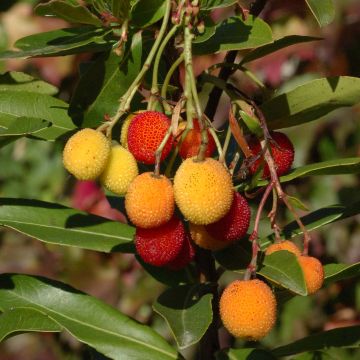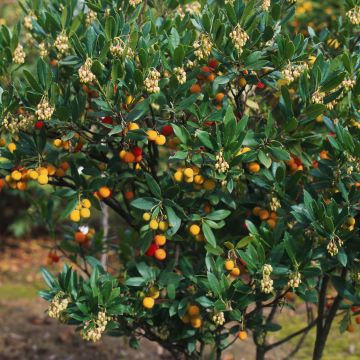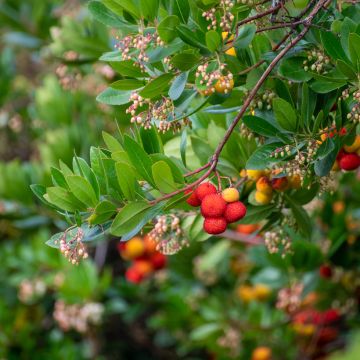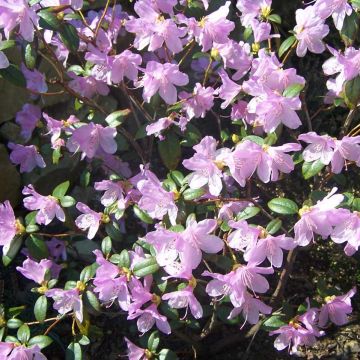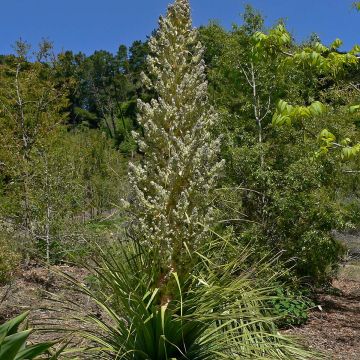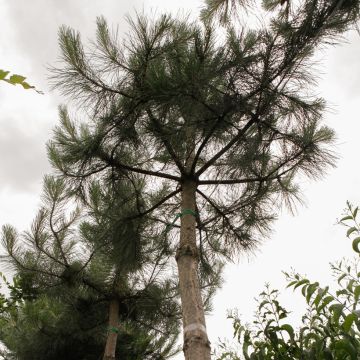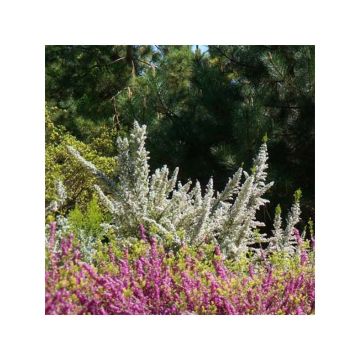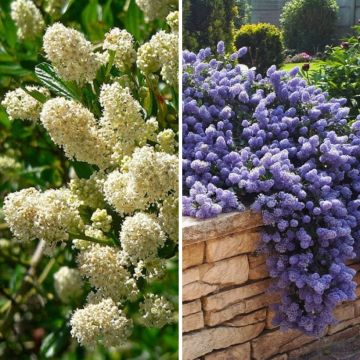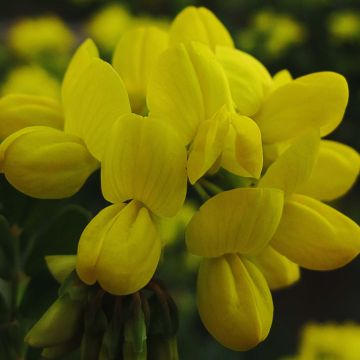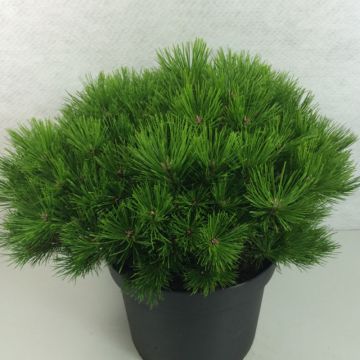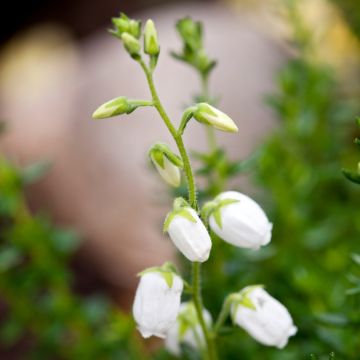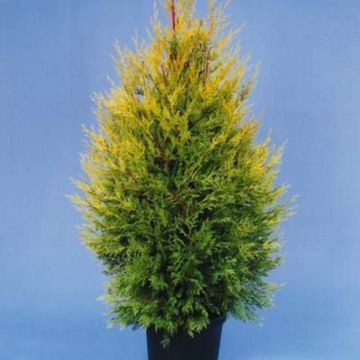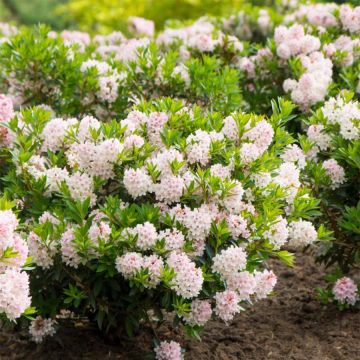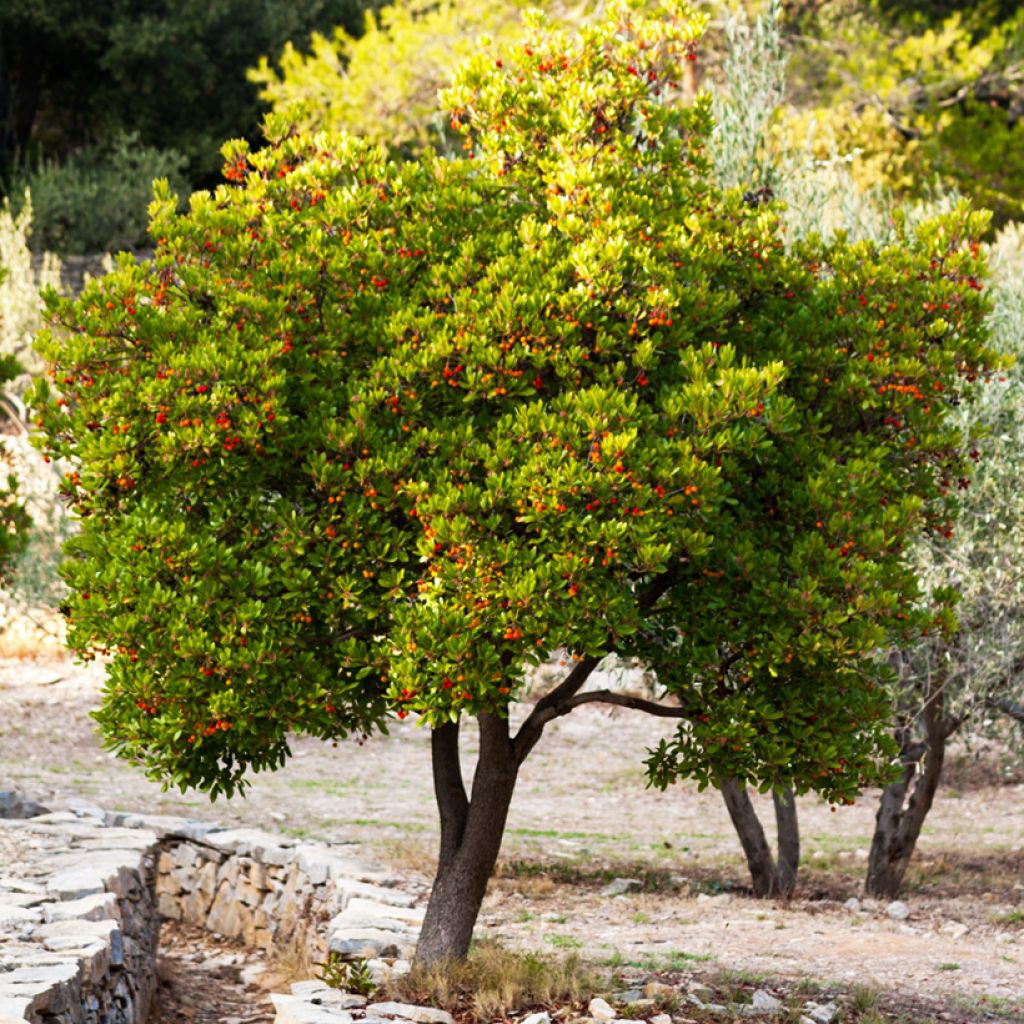

Arbutus unedo Compacta - Strawberry tree
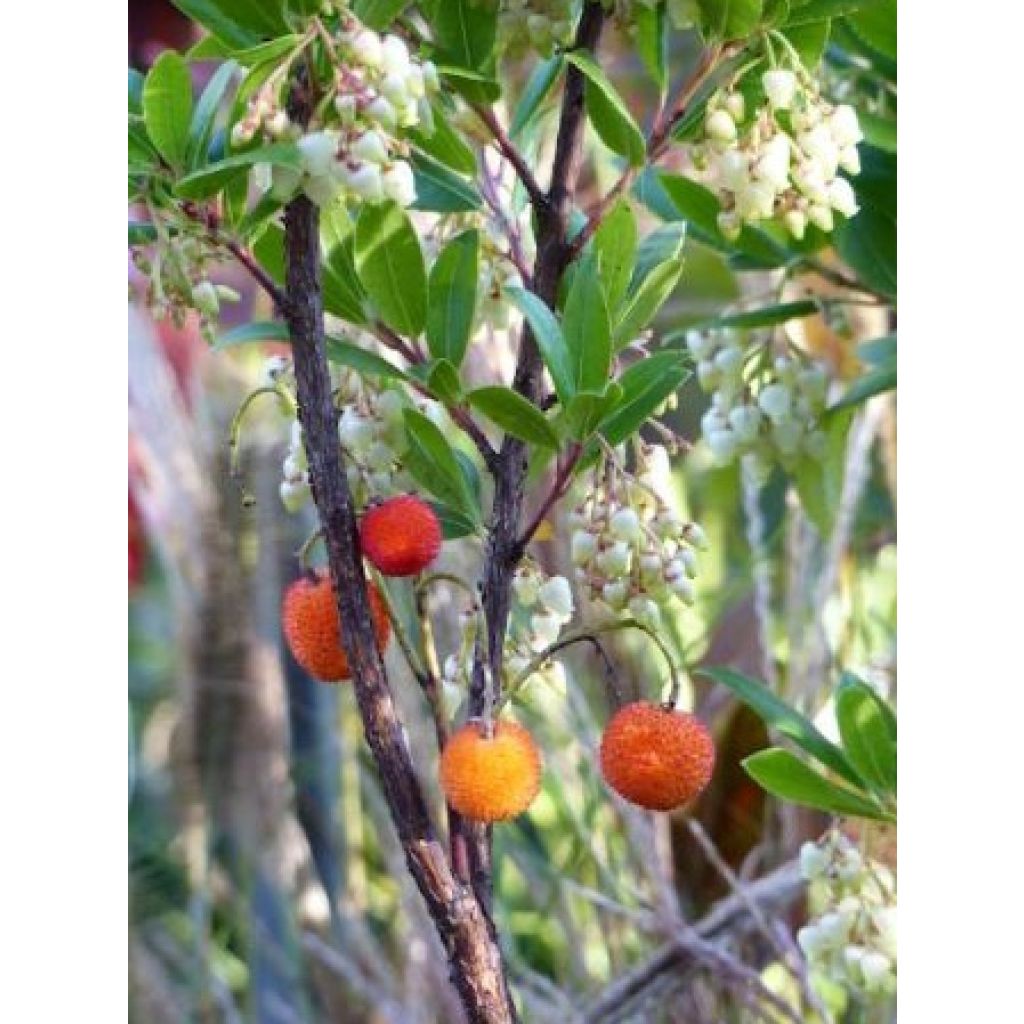

Arbutus unedo Compacta - Strawberry tree
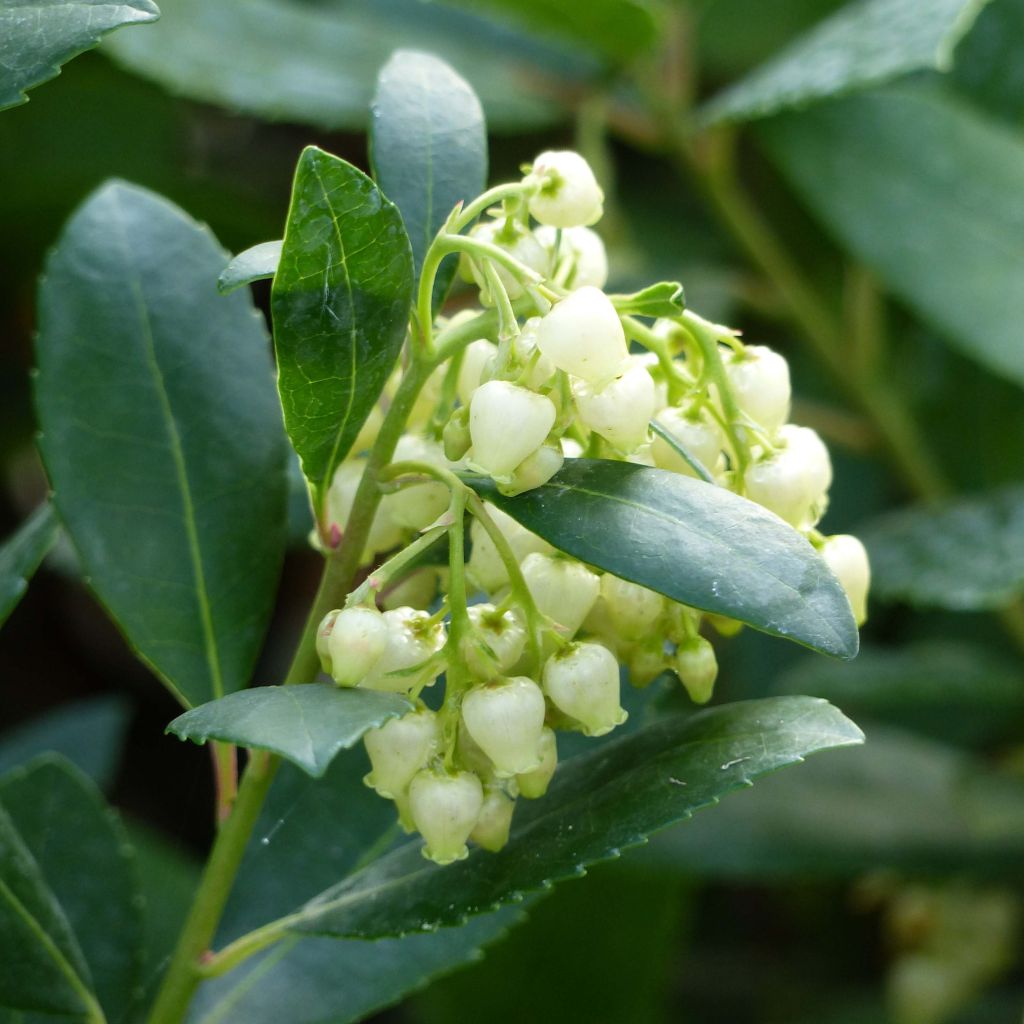

Arbutus unedo Compacta - Strawberry tree
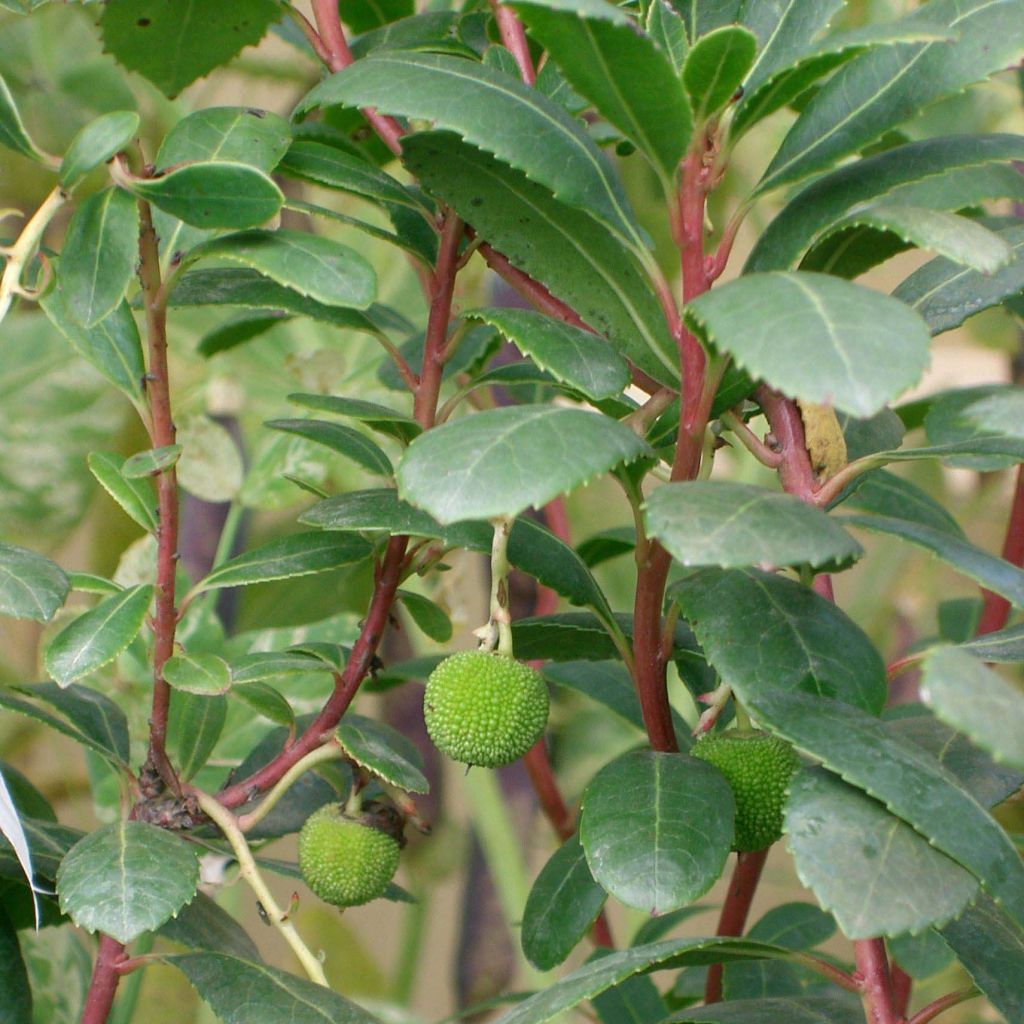

Arbutus unedo Compacta - Strawberry tree
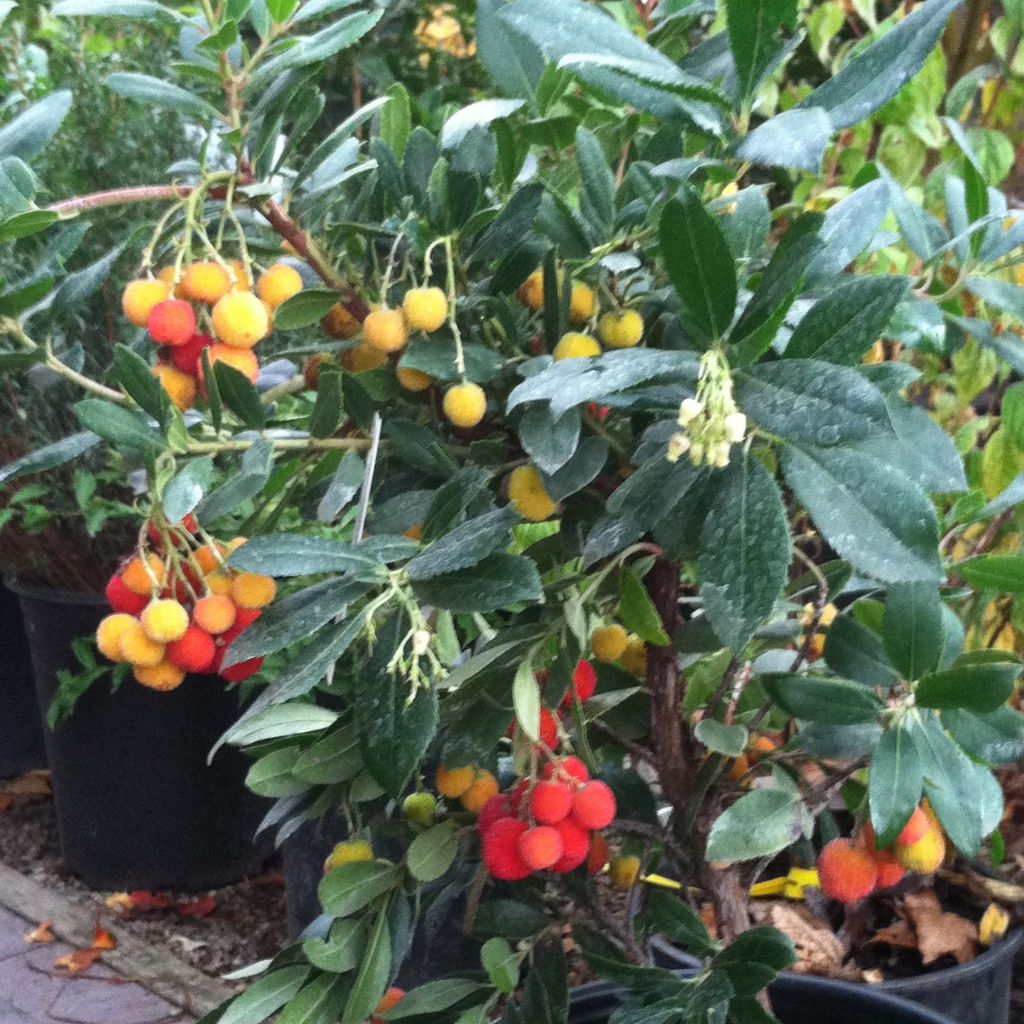

Arbutus unedo Compacta - Strawberry tree
Arbutus unedo Compacta - Strawberry tree
Arbutus unedo Compacta
Strawberry Tree, Madrone
This item cannot be shipped to the selected country
Delivery charge from €5.90
Delivery charge from €5.90
More information
Schedule delivery date,
and select date in basket
This plant carries a 24 months recovery warranty
More information
We guarantee the quality of our plants for a full growing cycle, and will replace at our expense any plant that fails to recover under normal climatic and planting conditions.
From €5.90 for pickup delivery and €6.90 for home delivery
Express home delivery from €8.90.
From €5.90 for pickup delivery and €6.90 for home delivery
Express home delivery from €8.90.
Does this plant fit my garden?
Set up your Plantfit profile →
Description
Arbutus unedo 'Compacta' is a compact variety of bush, more branching, flowering and fruiting than the typical type. This robust and sturdy bush is interesting for its long autumn and winter flowering in clusters of white bells. They bloom abundantly, accompanying from a young age round fruits, yellow then red and textured like strawberries, ripening one year after flowering. The flowers and fruits beautifully colour an evergreen bush dressed in particularly abundant foliage. The strawberry tree is hardy down to -12°C (10.4F). It grows in full sun as well as partial shade, and proves to be undemanding if planted in well-draining soil.
Common in gardens in the southern half of France and the Atlantic coast, the strawberry tree slowly but surely forms a large compact bush. The variety 'Compacta', selected in Ireland, is a dwarf version of this species. Arbutus unedo, native to southern Europe, belongs to the large family of ericaceae, the heathers and rhododendrons. The more branched cultivar with shorter internodes reaches about 2.5m (8ft) in height and 1.5m (4.9ft) in width in open ground. The very dense foliage almost conceals the branches of this bush. The evergreen leaves, 6 to 9cm (3.5in) long, are slightly toothed on the edges, dark green, shiny on the top. The young twigs are red and the trunk is adorned with a cinnamon-brown bark that peels off in fine, long strips. The flowers are honey-scented, white to pink, 7mm (0.3 in) in diameter and similar to lily of the valley bells and appear from late summer to winter. One year after flowering, they give way to small yellow balls, turning orange and then red, resembling strawberries, 3cm (1.2in) in diameter. This perfectly edible fruit does not have a strong flavour and has a rough texture. Unedo actually comes from Latin unum edo, which can be translated as "I eat only one".
The Arbutus unedo grows naturally in well-drained soil, generally rather acidic, siliceous, and even stony, but it is also found in the hills of Languedoc, on limestone or dolomitic subsoil, growing among evergreen oaks, pines and wild olive trees. This bush acclimatizes easily in the garden, in ordinary soil (even slightly chalky), provided that the drainage is perfect. The 'Compacta' variety, bushy and with abundant flowering, expands the genus and allows this southern bush to enter the terraces and balconies of the northern half of our country. It is valuable for forming the main structure of a small natural hedge and makes an unusual subject when placed in isolation. Not suceptible to pests and diseases, its only weakness is a borderline hardiness that reserves it, in open ground, for light soils and not too harsh winters.
It is also a medicinal plant, used to treat hypertension.
Report an error about the product description
Arbutus unedo Compacta - Strawberry tree in pictures
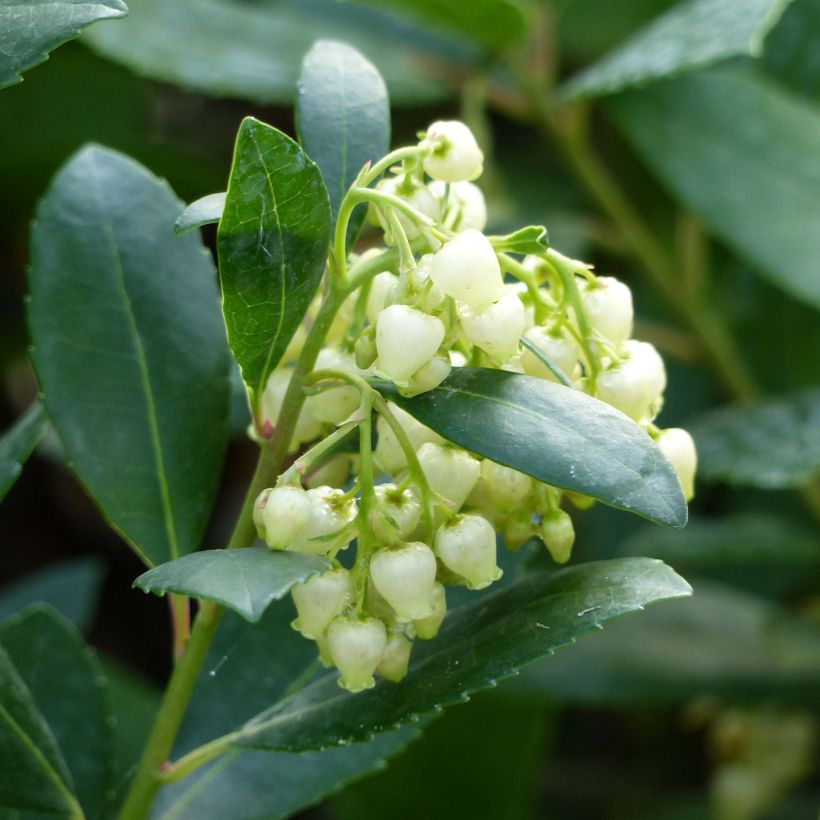

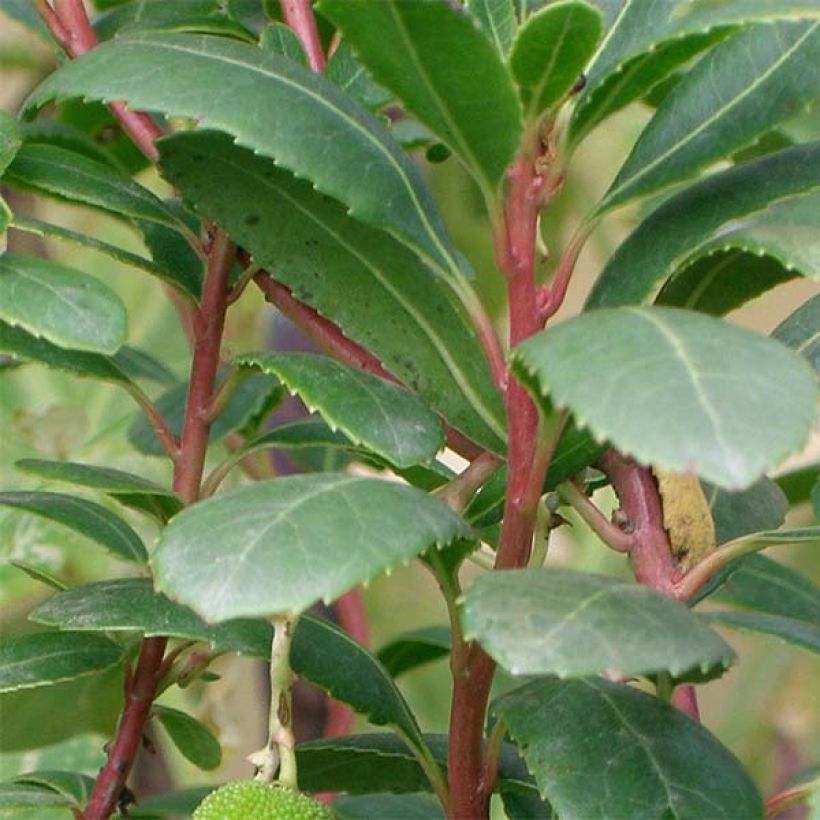

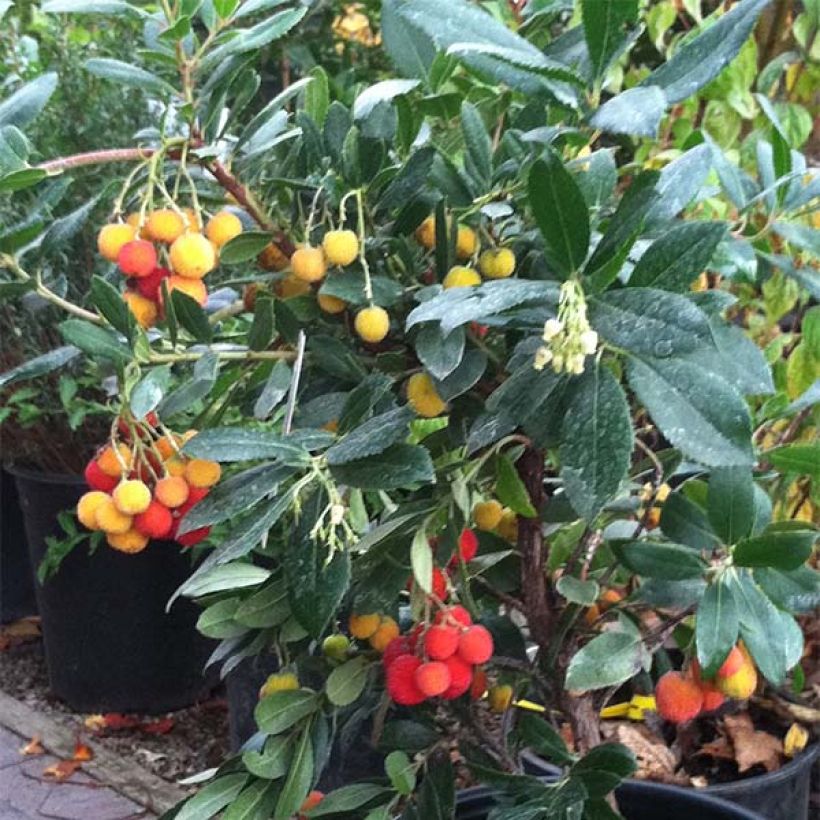

Plant habit
Flowering
Foliage
Botanical data
Arbutus
unedo
Compacta
Ericaceae
Strawberry Tree, Madrone
Cultivar or hybrid
Other Arbutus - Strawberry tree
Planting and care
The Arbutus unedo, hardy down to -12°C (10.4°F), even -15°C (5°F) in perfectly well-drained soil, can be planted in spring or autumn, preferably in slightly acidic soil, although it adapts to any light soil without excessive lime. It appreciates a sunny position in a cool climate, but is content with partial shade in a hot climate. Choose a location sheltered from cold winds. At planting, pruning is necessary for shaping; then let the bush grow freely. In the first years, protect it from heavy frosts with mulch and a winter cover. Once well established, after 2 or 3 years, this bush will completely do without watering in summer, even in dry soil and in a hot climate. Be careful to choose its location well as it does not like to be transplanted. For hedges, space the plants about 1m (3.3ft) apart. It can be subject to attacks by aphids and foliar spot disease.
Planting period
Intended location
Care
-
, onOrder confirmed
Reply from on Promesse de fleurs
Evergreen shrubs
Haven't found what you were looking for?
Hardiness is the lowest winter temperature a plant can endure without suffering serious damage or even dying. However, hardiness is affected by location (a sheltered area, such as a patio), protection (winter cover) and soil type (hardiness is improved by well-drained soil).

Photo Sharing Terms & Conditions
In order to encourage gardeners to interact and share their experiences, Promesse de fleurs offers various media enabling content to be uploaded onto its Site - in particular via the ‘Photo sharing’ module.
The User agrees to refrain from:
- Posting any content that is illegal, prejudicial, insulting, racist, inciteful to hatred, revisionist, contrary to public decency, that infringes on privacy or on the privacy rights of third parties, in particular the publicity rights of persons and goods, intellectual property rights, or the right to privacy.
- Submitting content on behalf of a third party;
- Impersonate the identity of a third party and/or publish any personal information about a third party;
In general, the User undertakes to refrain from any unethical behaviour.
All Content (in particular text, comments, files, images, photos, videos, creative works, etc.), which may be subject to property or intellectual property rights, image or other private rights, shall remain the property of the User, subject to the limited rights granted by the terms of the licence granted by Promesse de fleurs as stated below. Users are at liberty to publish or not to publish such Content on the Site, notably via the ‘Photo Sharing’ facility, and accept that this Content shall be made public and freely accessible, notably on the Internet.
Users further acknowledge, undertake to have ,and guarantee that they hold all necessary rights and permissions to publish such material on the Site, in particular with regard to the legislation in force pertaining to any privacy, property, intellectual property, image, or contractual rights, or rights of any other nature. By publishing such Content on the Site, Users acknowledge accepting full liability as publishers of the Content within the meaning of the law, and grant Promesse de fleurs, free of charge, an inclusive, worldwide licence for the said Content for the entire duration of its publication, including all reproduction, representation, up/downloading, displaying, performing, transmission, and storage rights.
Users also grant permission for their name to be linked to the Content and accept that this link may not always be made available.
By engaging in posting material, Users consent to their Content becoming automatically accessible on the Internet, in particular on other sites and/or blogs and/or web pages of the Promesse de fleurs site, including in particular social pages and the Promesse de fleurs catalogue.
Users may secure the removal of entrusted content free of charge by issuing a simple request via our contact form.
The flowering period indicated on our website applies to countries and regions located in USDA zone 8 (France, the United Kingdom, Ireland, the Netherlands, etc.)
It will vary according to where you live:
- In zones 9 to 10 (Italy, Spain, Greece, etc.), flowering will occur about 2 to 4 weeks earlier.
- In zones 6 to 7 (Germany, Poland, Slovenia, and lower mountainous regions), flowering will be delayed by 2 to 3 weeks.
- In zone 5 (Central Europe, Scandinavia), blooming will be delayed by 3 to 5 weeks.
In temperate climates, pruning of spring-flowering shrubs (forsythia, spireas, etc.) should be done just after flowering.
Pruning of summer-flowering shrubs (Indian Lilac, Perovskia, etc.) can be done in winter or spring.
In cold regions as well as with frost-sensitive plants, avoid pruning too early when severe frosts may still occur.
The planting period indicated on our website applies to countries and regions located in USDA zone 8 (France, United Kingdom, Ireland, Netherlands).
It will vary according to where you live:
- In Mediterranean zones (Marseille, Madrid, Milan, etc.), autumn and winter are the best planting periods.
- In continental zones (Strasbourg, Munich, Vienna, etc.), delay planting by 2 to 3 weeks in spring and bring it forward by 2 to 4 weeks in autumn.
- In mountainous regions (the Alps, Pyrenees, Carpathians, etc.), it is best to plant in late spring (May-June) or late summer (August-September).
The harvesting period indicated on our website applies to countries and regions in USDA zone 8 (France, England, Ireland, the Netherlands).
In colder areas (Scandinavia, Poland, Austria...) fruit and vegetable harvests are likely to be delayed by 3-4 weeks.
In warmer areas (Italy, Spain, Greece, etc.), harvesting will probably take place earlier, depending on weather conditions.
The sowing periods indicated on our website apply to countries and regions within USDA Zone 8 (France, UK, Ireland, Netherlands).
In colder areas (Scandinavia, Poland, Austria...), delay any outdoor sowing by 3-4 weeks, or sow under glass.
In warmer climes (Italy, Spain, Greece, etc.), bring outdoor sowing forward by a few weeks.

































